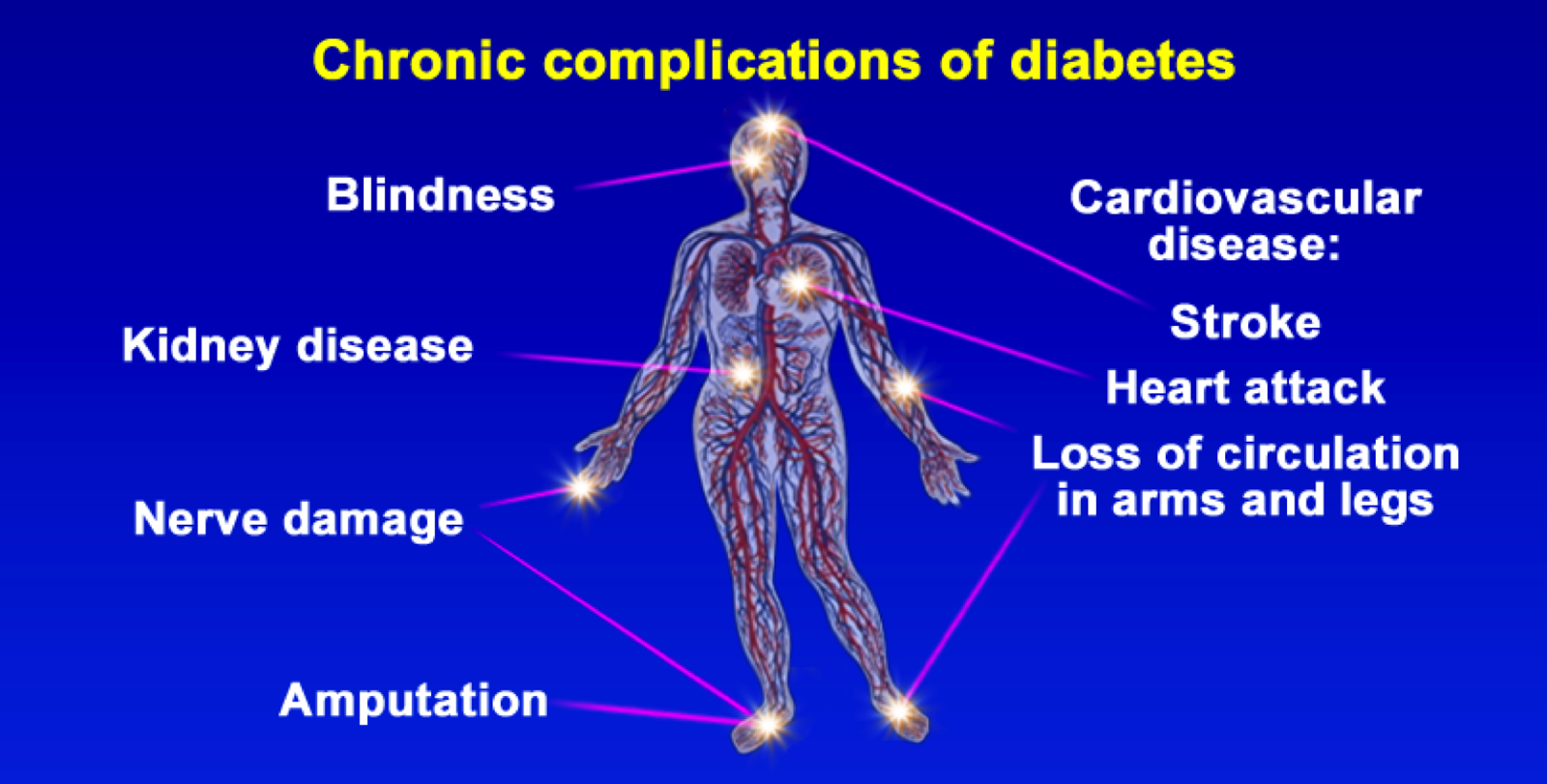Complications Of Diabetes
When you control the level of sugar in your blood, the signs of diabetes become less frequent. You will feel better and have more energy. If you do not follow your diet, exercise, and perform sugar level tests, serious complications can arise.
Complications of diabetes include damage to the nerves and blood vessels of the body.
It is not known why diabetes causes nerves to become damaged. The nerve damage is known as diabetic neuropathy. It usually involves the nerves going to the lower legs and feet. The feet or legs could feel numb or unusually cold.
People with diabetes who have poor sensation in their feet must be very careful to avoid damaging their feet with ill-fitting shoes, hot water, or other forms of injury.
Check your feet every day for cuts, sores, redness, or swelling. Use a mirror if needed. When visiting a medical clinic, ask your doctor to check your feet.

Sexual dysfunction can occur. In men with diabetes, the most common problem is impotence due to damaged nerves going to the sexual organs. Urologists can help treat impotence with surgical and non-surgical treatments.
In women with diabetes, damaged nerves in the pelvic organs and genitals can lead to impaired sexual arousal and painful intercourse. If this occurs, your doctor can recommend a treatment.
Because the nerves that go to the heart may be affected, diabetics who have a heart attack may not experience the typically described chest pain. Diabetic patients should therefore be very suspicious when they feel chest heaviness, arm numbness or indigestion. These could be symptoms of a heart attack.
High blood sugar can cause damage to large and small blood vessels. Fat in the blood is deposited on the walls of blood vessels. This causes hardening of the arteries or arteriosclerosis.
Hardening of the arteries can occur in important arteries leaving or entering the heart. It can also occur in the legs.
Your diet plan is designed to lower the level of fat and cholesterol in the blood.
When small blood vessels are narrowed by plaque and fat, the blood flow to the organs becomes insufficient. This causes the death of cells dependent on receiving the blood. It can also cause bleeding from narrowed blood vessels.
The thickening of small blood vessels is most noticeable in the kidney and in the back of the eye.
When the small vessels in the back of the eye thicken, blood may leak into the inside of the eye or vitreous fluid. This causes the vitreous fluid to become cloudy. If not treated, this condition, also known as diabetic retinopathy, can lead to blindness. Your eye doctor can help recommend treatment for this condition.
Diabetes may stop the kidneys from cleaning waste out of the blood. In addition, proteins that should stay in the body may leak into the urine. Your doctor can test for small proteins in your urine to determine if there are early signs of kidney diseases.
People with diabetic kidney disease often develop high blood pressure. It is very important that the high blood pressure be treated with blood pressure lowering medicines because this helps to prevent worsening of the kidney problems. If you have diabetic kidney disease, your doctor may also prescribe a special diet that is low in protein and restricted in salt.
In rare cases, dialysis and even kidney transplants may become necessary.
Most doctors feel that controlling your diabetes will help prevent damage to blood vessels and nerves. Proper control of diabetes is a combination of diet plan, medication, exercise, blood sugar monitoring, and good hygiene.
